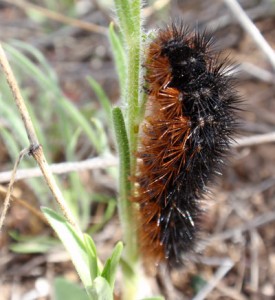Singer, Mace ’07 Research Published in Scientific Journals

Michael Singer, assistant professor of biology, is the author of “Self-Medication as Adaptive Plasticity: Increased Ingestion of Plant Toxins by Parasitized Caterpillars,” published in PLoS ONE, March 2009. PLoS ONE is an open access, online scientific journal from the Public Library of Science.
This new article rigorously demonstrates that caterpillars can self-medicate, following up on a previous publication in Nature in 2005. This is the first experimental demonstration of self-medication by an invertebrate animal.
This paper also represents the first publication to arise from research funded by a National Science Foundation (NSF) grant awarded to Singer in December 2007. Kevi Mace BA ’07 MA ’08 assisted with the research.
The research also was featured in an article titled “Woolly Bear, Heal Thyself,” published in Discover Magazine online, and in an article titled “Woolly Bear Caterpillars Self-Medicate — A Bug First,” published in National Geographic News. The caterpillars also were mentioned in the March 26, 2009 edition of nature-research-highlights-09.

